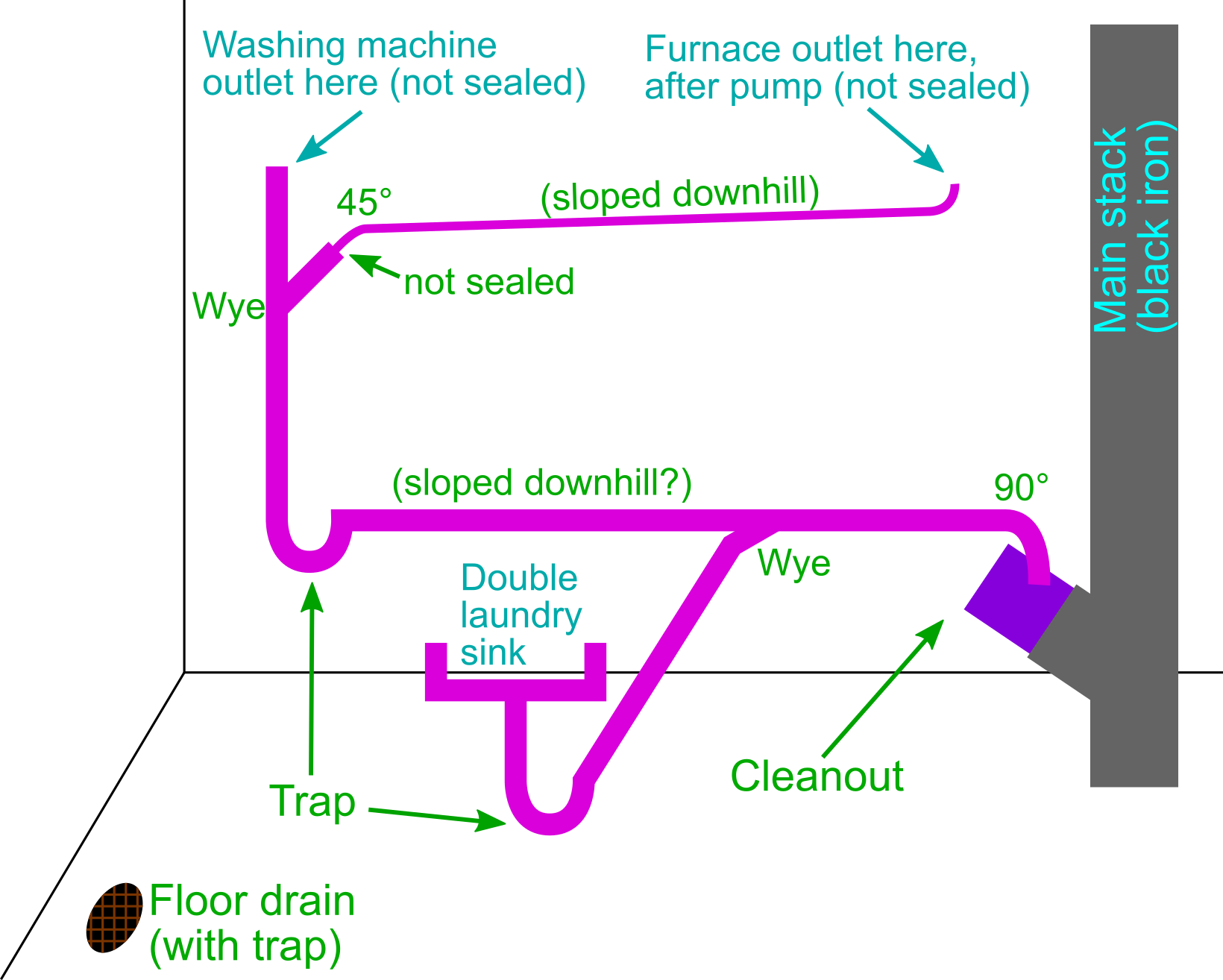I recently started detecting a sewer smell coming from the laundry room in my basement. I think I only trigger it (and not every time) when I run my whole-house fan. I've been running this fan (with plenty of windows open) for at least a month without this problem, so it seems like something may have changed.
Here is a figure of the plumbing in that room. It contains a waste line for the laundry and a laundry sink attached to the cleanout off of the main stack. There is also a floor drain (with its own trap), but it's off in it's own corner and doesn't seem to have the sewer smell around it.
I've been doing some research, and seen one or two related questions here. The closest is Install air admittance valve to solve musty smell (sewer gas)?, but I'm not seeing quite the same symptoms. I don't notice any issues with the drain speed (though I'm not sure I could tell there are issues from the washing machine, the sink is fine), and I've only noticed the smell accumulating slowly when running the whole-house fan.
I originally thought that the lack of venting on this line could be the issue, with one of the traps being siphoned dry by the other, but I don't notice anything after running the laundry. I also tried adding water to the traps when I start smelling sewer gas, but it's not clear that it helps (the seeping gas might be coming in too slow to tell - the basement is not well ventilated, so it takes a while for the smell to clear).
One other concern I've come across is corrosion in the black iron drain/vent pipe (100 year old house) may have opened up a small hole that I can pull out sewer gas from with the negative pressure of the whole-house fan, but I'm not sure how I can test this.
Any thoughts on what I can try are appreciated.

